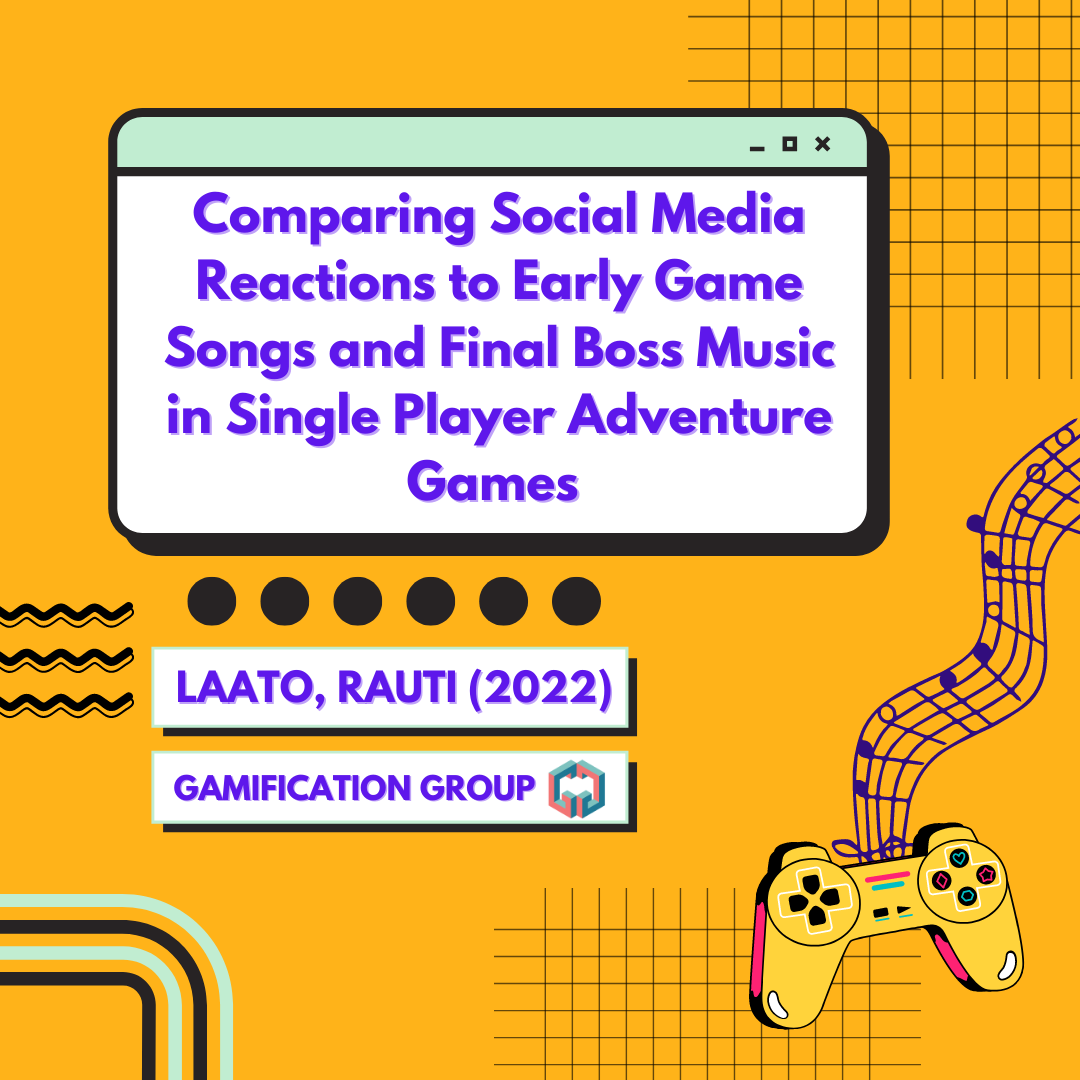
Comparing Social Media Reactions to Early Game Songs and Final Boss Music in Single Player Adventure Games
Video game music can fulfill various purposes, it can support game mechanics, amplify emotional themes, and add meaning to fictional spaces. The role of music is also strongly tied to feelings of nostalgia which is connected to social memories, relatedness, and connectedness. This paper investigates what kinds of sentiments video game music generates through three guiding research questions: (RQ1) “On which topics do adventure game players focus on when commenting on the game soundtrack on social media?”, (RQ2) “What themes are present in YouTube comments regarding the impact of music in older games versus newer games?”, (RQ3) “What themes are present in YouTube comments regarding early game songs versus the final battle music?”.
To address these research questions, 1893 comments on 20 popular single-player adventure game songs were picked and sorted into four clusters based on the age of the game and whether the song appears early in the game or at the end. The comments were coded to 7 emerging themes: nostalgia, sadness, comfort, attachment, appreciation, joy, and cool. Furthermore, what topics the comments focused on were also noted in three broad categories of the game, real life, and the song itself.
For RQ1, the results show that across all four clusters of songs, there were considerably more comments focusing on the game (n=721) than on the songs (n=428).
For RQ2 and RQ3 a variety of findings were found. First, nostalgia appeared as a major theme in the early game songs of old games (45% of comments), but less so in early game songs of new games (18%) and final battle themes of old games (8%). Second, the comments showed that early game songs were often associated with feelings of comfort while the boss battles were not due to various factors such as in-game associations and memories of childhood. Third, final battle music featured considerably more comments related to the game (54%) than early game songs (23%). Lastly, it was found that nostalgia may emerge quickly, even during a single playthrough of a game. Many players expressed their nostalgia about returning to the hometowns in games where they first started.
The study concludes by pointing out some limitations that indicate future research possibilities. First, it is noted that the data examined for this article are exclusively adventure game songs; different results could be found in other genres. Second, individuals who leave comments on YouTube are already emotionally inclined, so the results should not be considered representative of all gamer populations.
Laato, S., & Rauti, S. (2022). Comparing Social Media Reactions to Early Game Songs and Final Boss Music in Single Player Adventure Games. In Proceedings of the 55th Hawaii International Conference on System Sciences.
https://scholarspace.manoa.hawaii.edu/handle/10125/79718
Abstract
Single player video games unite players through shared experiences, passion and knowledge about the game. We investigated the role of video game music in this setting. We analysed comments (n=1893) on 20 popular single player adventure game songs on social media sorted into four clusters based on the following two variables (1) age of the game; and (2) whether the song appears early on in the game or at the end. We discovered that there are more similarities in the types of comments and sentiments between early game songs across games than between songs from the same game. Early game songs had substantially more comments related to nostalgia, sadness and ”feeling of home” compared to late game songs. Comments on late game songs were more focused on players’ experiences while playing. Overall, all 20 songs had overwhelmingly more comments on associations (both game and life related) than on the actual song itself.




Sorry, the comment form is closed at this time.